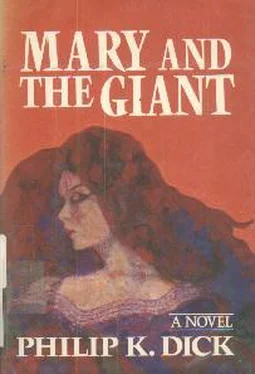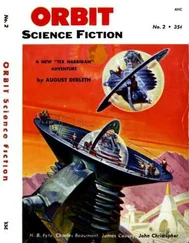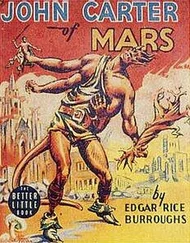Philip Dick - Mary And The Giant
Здесь есть возможность читать онлайн «Philip Dick - Mary And The Giant» весь текст электронной книги совершенно бесплатно (целиком полную версию без сокращений). В некоторых случаях можно слушать аудио, скачать через торрент в формате fb2 и присутствует краткое содержание. Жанр: Фантастика и фэнтези, на английском языке. Описание произведения, (предисловие) а так же отзывы посетителей доступны на портале библиотеки ЛибКат.
- Название:Mary And The Giant
- Автор:
- Жанр:
- Год:неизвестен
- ISBN:нет данных
- Рейтинг книги:4 / 5. Голосов: 1
-
Избранное:Добавить в избранное
- Отзывы:
-
Ваша оценка:
- 80
- 1
- 2
- 3
- 4
- 5
Mary And The Giant: краткое содержание, описание и аннотация
Предлагаем к чтению аннотацию, описание, краткое содержание или предисловие (зависит от того, что написал сам автор книги «Mary And The Giant»). Если вы не нашли необходимую информацию о книге — напишите в комментариях, мы постараемся отыскать её.
Mary And The Giant — читать онлайн бесплатно полную книгу (весь текст) целиком
Ниже представлен текст книги, разбитый по страницам. Система сохранения места последней прочитанной страницы, позволяет с удобством читать онлайн бесплатно книгу «Mary And The Giant», без необходимости каждый раз заново искать на чём Вы остановились. Поставьте закладку, и сможете в любой момент перейти на страницу, на которой закончили чтение.
Интервал:
Закладка:
Coombs was still not hearing, but Beth laughed merrily. "It's good to hear you again, Joe. I've missed conversation."
Defeated, Schilling gave up. "Want an armload of records? Want the cash register?" He made a resigned, giving motion. "Want the diamond needles out of the cartridges? They're worth ten bucks apiece."
"Very funny," Coombs said. "Our business here is legitimate."
"You're still in the photography business?"
"Off and on."
"You didn't come here to photograph people."
After a pause, Beth said: "Well, we've been depending mostly on the music teaching."
"You're going to teach here?"
"We thought," Beth said, "that you could give us some help. You're fairly well settled. You have your store; you've probably built up contacts with the musical people in town. You're going to sell sheet music, aren't you?"
"No," Schilling said. "And I'm not going to give you a job. And I'm not going to fool around with this thing; I'm operating on a limited budget and I have all the expenses I can stand."
In a sputter of excitement, Coombs said: "You can give us a plug; that won't cost you anything. All the old ladies come around asking who's a piano teacher. What are you going to do at Christmas? You can't run your record store alone; you need somebody to help you."
"Surely you're going to hire somebody," Beth persisted. "I'm surprised you haven't already."
"I never was good at hiring."
"You don't feel you could use some help here?"
"I just said-I don't get that many customers. And I don't have that much money." Schilling kept his eye on the browsers among the display racks. "I'll paste a card over the cash register with your name and address. When someone wants a piano teacher, I'll send them around. That's all I can do."
Coombs said: "You don't feel you owe us something?"
"Good God, what?"
"No matter what you do," Coombs said rapidly, stumbling over his words, "you can never make up for the terrible harm you did us. You ought to get down on your knees and beg God to forgive you."
"You mean," Schilling said, "that because I didn't pay her then, I should pay her now?"
For a moment Coombs stood blinking, and then he melted altogether in a puddle of frenzy. "You should be destroyed," he said, his teeth chattering. "You're-"
"Let's go," Beth said, starting toward the door. "Come on, Danny."
"I heard a good one," Schilling said to Danny Coombs. "Right up your line. Somebody installed one of those one-way mirrors in a women's shower, one of those big mirrors, full-length. Maybe you can tell me how those work; one side is a mirror but the other is a window."
Pale but composed, Beth said: "Good luck with your store. Maybe we'll see you around."
"All right," he said. Reflexively he gathered an armload of records and began filing them.
"I don't see why we have to quarrel," Beth continued. "There's no reason why Danny and I can't come here; the Los Angeles job fizzled, and we were driving up the coast."
"But the same town," Schilling said. "And within a couple of months.
"Music is booming here. We're letting you do the groundwork."
"My grave or yours? Or all of ours?"
"Don't be nasty," Beth said.
"I'm not being nasty," Schilling answered. Well, this was his punishment for having lost-for a day or so-his better judgment. For having been weak enough to go to bed with another man's wife, and improvident enough to let the man find out. "Just being nostalgic," he said, and went on filing records.
8
On the fall of 1953 Mary Anne Reynolds lived in a small apartment with a girl named Phyllis Squire. Phyllis was a waitress at the Golden State lunch counter, which was next door to the Lazy Wren, and Carleton Tweany himself had selected her. Thereby he had solved, in his own mind, Mary Anne's problems. He did not now have much to do with her. For Mary Anne there was little more than the passage of his presence; back and forth, not stopping, he went by and beyond her.
The telephone company job she had taken required her to work a split shift. At twelve-thirty at night she reached the apartment, and ate, and changed her clothes. As she changed, her roommate, in bed, read aloud from a copy of the sermons of Fulton Sheen.
"What's the trouble?" Phyllis asked, her mouth full of apple. In the corner, her white-enamel radio played a Perez Prado mambo. "You're not listening."
Ignoring her, Mary Anne slipped into her red culottes, stuffed in the tails of her shirt, and went to the door. "Don't go blind," she said over her shoulder, and closed the door behind her.
Noise and the movement of people flashed out into the dark street as she entered the Wren. Tables crowded with people, the line of men squeezed together at the bar ... but Tweany was not singing. She was aware of it instantly. The upraised platform in the center was bare; he was nowhere in sight, and even Paul Nitz was absent.
"Hey," Taft Eaton said from behind the bar. "You get out of here; I'm not serving you."
Avoiding him, she began threading among the tables, searching for a place to sit.
"I mean it. You're a minor; you're not supposed to be in here. What do you want, you want me to lose my license?"
His voice faded as she reached the platform. Slouched at a table was Paul Nitz, conversing with a pair of patrons. He had apparently left his piano to talk to them; straddling a chair, leaning his bony chin against his arms, he was orating. "... but you have to make a distinction between folk songs and folk-type songs. Like jazz, and music in the jazz idiom."
The couple glanced up as she brought over a chair and seated herself. Nitz broke off what he was saying long enough to greet her. "How are you?"
"Fine," she said, "where's Tweany?"
"He just sang. He'll be back."
She felt a surge of tension. "Is he in the rear?"
"He probably is, but you can't go back there. Eaton'll throw you out on your ear."
At the side of the table appeared Taft Eaton, still fuming. "Goddamn it, Mary, I can't serve you. If the cops find you in here they'll close the Wren."
"Say I came in to use the john," she murmured. Pretending to ignore him, she began sliding out of her coat.
Eaton glowered at Nitz, who sat picking a bit of thread from his sleeve. "Don't you buy her anything. Contributing to the delinquency of minors-you and Carleton. You ought to be in jail." Taking her by the scruff of the neck, he said in her ear, "You ought to stay with your own race, where you belong."
Then he was gone, leaving Mary Anne to massage the back of her neck. "Drop dead," she muttered. It hurt, and she felt humiliated. But then, gradually, the pain left; and the need of Tweany resumed its usual dominance. "I'm going back and see if he's there."
"He'll be out," Nitz assured her. "Sit still ... you and your hurry. Relax."
"I've got things to do. Where was he last night?"
"He was here."
"I don't mean here; I mean afterward. I went over to his pad at two-thirty and he wasn't home. He was out."
"Maybe so." Nitz dragged his chair around and returned to the listening couple. "Look at it this way, lady," he said, addressing the woman, a plump, somewhat pretty blonde. "Would you call Stephen Foster's stuff folk music?"
The blonde considered at excessive length. "No, I guess not. But it was based on folk themes."
"That's my point. Folk music is not what you have, but how you go about it. Nobody can plop himself down and write a folk song; and nobody can get up in white tie and tails in some plush cocktail lounge and sing a folk song."
"Does anybody sing folk music, then?"
"Not now. But they did, once. They sang, they added verses, they put together new material constantly."
She became aware of the nature of their discussion. It had to do with Tweany, and they were attacking him. "Don't you think he's a great folksinger?" she demanded, addressing the blonde. In her world, loyalty was a vital pillar. She could not understand this veiled undercutting of a friend; it seemed her responsibility to defend him. "What's wrong with him?"
Читать дальшеИнтервал:
Закладка:
Похожие книги на «Mary And The Giant»
Представляем Вашему вниманию похожие книги на «Mary And The Giant» списком для выбора. Мы отобрали схожую по названию и смыслу литературу в надежде предоставить читателям больше вариантов отыскать новые, интересные, ещё непрочитанные произведения.
Обсуждение, отзывы о книге «Mary And The Giant» и просто собственные мнения читателей. Оставьте ваши комментарии, напишите, что Вы думаете о произведении, его смысле или главных героях. Укажите что конкретно понравилось, а что нет, и почему Вы так считаете.










